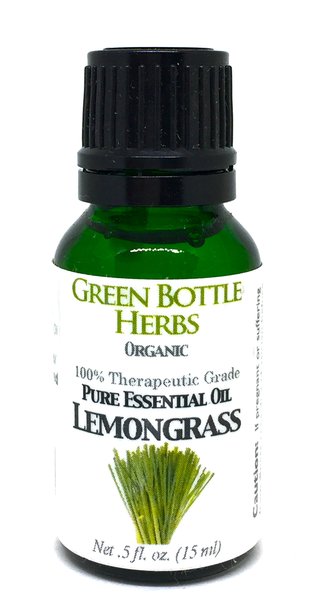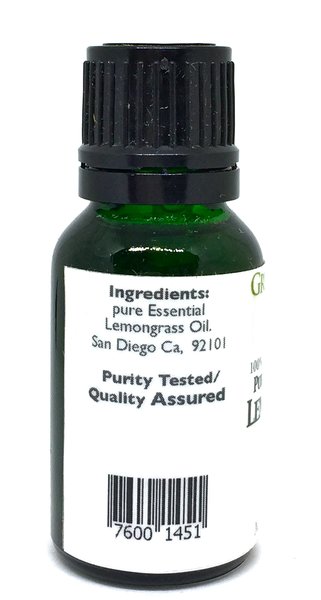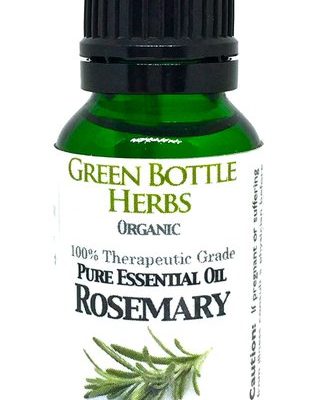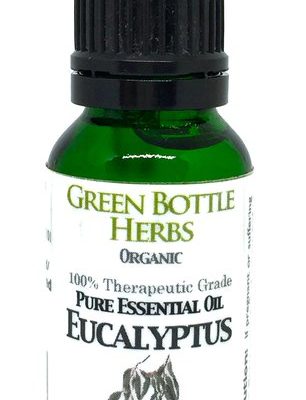Description
Botanical Name: Cymbopogon flexuosus
Extraction: Steam Distilled
Parts Used: Leaf tops.
Aroma: Fresh, earthy, citrusy scent.
Origin: India
Traditional Use: Lemongrass Essential Oil is known for its invigorating and antiseptic properties. It can be used in facial toners as its astringent properties help fight acne and greasy skin. An excellent anti-depressant, Lemongrass Essential Oil tones and fortifies the nervous system and can be used in bath for soothing muscular nerves and pain. Lemongrass shares similar properties with citronella and has a great reputation for keeping insects away.
Blends Well With: Basil, Bergamot, Black Pepper, Cedarwood, Clary Sage, Coriander, Cypress, Fennel, Geranium, Ginger, Grapefruit, Lavender, Lemon, Marjoram, Orange, Palmarosa, Patchouli, Rosemary, Tea Tree, Thyme, Vetiver, Ylang Ylang.
Safety Data: May cause skin irritation.
General: As with all essential oils, never use them undiluted, in eyes or mucus membranes. Do not take internally unless working with a qualified and expert practitioner. Keep away from children. If applying an essential oil to your skin always perform a small patch test to an insensitive part of the body after you have properly diluted the oil in an appropriate carrier.
Uses For Lemon Grass Essential Oil
Lemongrass is a plant. The leaves and the oil are used to make medicine.
Lemongrass is used for treating digestive tract spasms, stomachache, high blood pressure, convulsions, pain, vomiting, cough, achy joints (rheumatism), fever, the common cold, and exhaustion. It is also used to kill germs and as a mild astringent.
Some people apply lemongrass and its essential oil directly to the skin for headache, stomachache, abdominal pain, and muscle pain.
By inhalation, the essential oil of lemongrass is used as aromatherapy for muscle pain.
In food and beverages, lemongrass is used as a flavoring. For example, lemongrass leaves are commonly used as “lemon” flavoring in herbal teas.
In manufacturing, lemongrass is used as a fragrance in soaps and cosmetics. Lemongrass is also used in making vitamin A and natural citral.
How does it work?
Lemongrass might help prevent the growth of some bacteria and yeast. Lemongrass also contains substances that are thought to relieve pain, reduce fever, stimulate the uterus and menstrual flow, and have antioxidant properties.
Uses and Benefits of Lemongrass Essential Oil:
Allergies
Asthma
Cold and Flu
Constipation
Fever
Hypertension
Sore Throat
Stomach Ache
Stress
Throat Infections
Lemongrass is LIKELY SAFE for most people when used in food amounts. It is POSSIBLY SAFE when taken by mouth or applied to the skin short-term for medicinal purposes. However, there have been some toxic side effects, such as lung problems after inhaling lemongrass and a fatal poisoning after a child swallowed a lemongrass oil-based insect repellent.
Special Precautions & Warnings:
Pregnancy and breast-feeding: It is LIKELY UNSAFE to take lemongrass by mouth during pregnancy. Lemongrass seems to be able to start menstrual flow, so there is a concern that it might cause a miscarriage.
There is not enough reliable information about the safety of taking lemongrass if you are pregnant or breast-feeding. Stay on the safe side and avoid use.
Ingredients: Organic Lemongrass Essential Oil
Green Bottle Herbs does not claim that its products will cure any diseases. Information on this web site is for educational purposes only. Always consult with a qualified health practitioner before deciding on any course of treatment, especially for serious or life-threatening illnesses. This information is not intended to diagnose, treat, cure, or prevent any disease.






